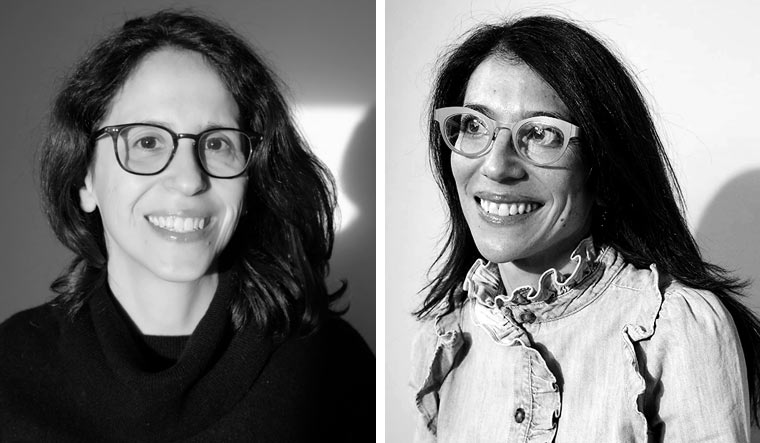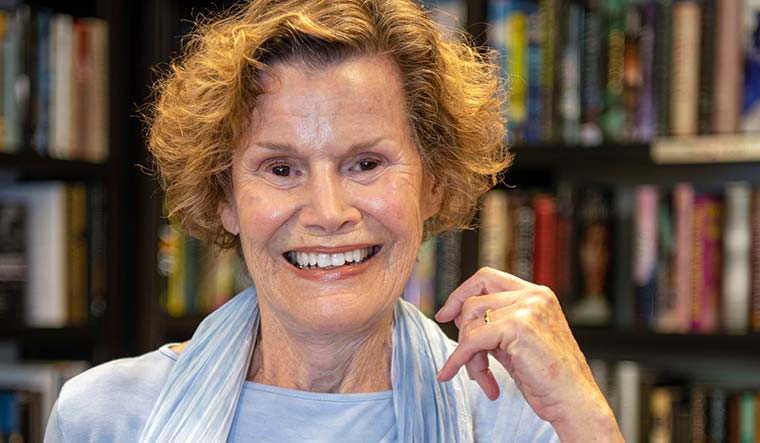Author Judy Blume’s daughter, Randy, once asked her for a story about “two nice kids who have sex without either of them having to die”. Until then, in all the novels Randy had read about sex outside marriage, the girl was always punished for it― with an unplanned pregnancy, a painful abortion or sometimes even death. Blume set out to destroy the norm with her young adult book, Forever, about a chance encounter between two high-school kids, their whirlwind romance and then, a summer apart as a test of their love. The book became hugely controversial for its explicit sexual content when it hit the stands in 1975.
But by then, Blume had become controversy’s poster child. Back in the 1970s, two American women blew the lid off female sexuality―Nancy Friday, who wrote for adults, and Blume, who wrote for young adults and teens. They addressed topics such as women’s intimate fantasies, menstruation and birth control. Termed ‘pornographic’ and ‘inappropriate’ then, the books were well ahead of their time.
It was this blend of honesty and courage which Blume, now 85, was famous for, that inspired American filmmakers Davina Pardo and Leah Wolchok to make a documentary on her―Judy Blume Forever―which released on Amazon Prime Video on April 21 to much critical acclaim. “I was on a road trip with my family and decided to play an audiobook,” Pardo told THE WEEK in an exclusive interaction. “It turned out to be Blume’s Tales of a Fourth Grade Nothing, narrated by the author herself. It hit me in a very visceral way and I wanted to know everything about Blume, who had such a huge cultural impact.”
Coming from a middle-class Jewish family, Blume felt that adults kept secrets from children then and pretended that everything was fine even if it was not. This fascination with secrecy, says Blume, fueled her imagination from a young age. “Neither one of my parents ever told me that sex was bad,” Blume once said. “Nobody ever said it was wrong for a girl to enjoy her sexuality. My father made it clear that I would be enjoying my sexuality―just not until, as he used to say, ‘You should really wait until you are married or you are 25. I was like, ‘25, daddy’?” With her conservative parents’ refusal to answer her questions, Blume decided to answer them for others. She narrowed the gap in young adult literature with her writing, addressing such topics as body image issues, pleasuring oneself, first love and losing one’s virginity―topics that remain scandalous in young adult fiction even today.
Her writing matured with age. When she had children, she wrote to suit their sensibilities and came out with animated books. As they grew up, she addressed subjects that they were grappling with―such as sibling rivalry and bullying. Her young adult books Tiger Eyes (1981), Deenie (1973) and Are You There God, It’s Me, Margaret (1970) deal with sex, masturbation and religious identity. When she found herself caught in an unhappy marriage, Blume wrote Wifey (1978)―her first book for adults about a bored housewife who has an extramarital affair and discovers that her husband, too, might be having one.
 Davina Pardo and Leah Wolchok
Davina Pardo and Leah Wolchok
The themes she addressed―abortion, anti-semitism and birth control―remain relevant even today. Blume has also spoken out on book bans and the increasing curtailing of the freedom of expression in the US, as evidenced by the gruesome attack on author Salman Rushdie in 2022. According to Pen America, book bans in American public schools increased by 28 per cent in the first half of the 2022-23 academic year. The writer’s organisation described it as “a relentless conservative crusade to constrict children’s freedom to read”. Another controversial subject was the whitewashing of classics, with colourful references in books by Roald Dahl and others wiped off to suit “modern sensibilities”.
Talking about censorship in Blume’s books back then, Wolchok says, “Blume has always been a fierce advocate for the freedom to read and speak, and she has been a fierce defender of authors whose books are being challenged. What is scary is how politicised book banning has become in the US now.” This, she feels, is unfair to children. “Every child deserves to see themselves reflected in a story and enjoy characters who remind them of themselves,” she says.
Blume was closely involved in the making of the documentary. She also introduced the makers to two women―Lorrie Kim and Karen Chilstrom―who grew up reading Blume and had been writing to her ever since. Such was the impact of Blume on children that they wrote letters confiding their struggles, and she wrote back. “How do you know our secrets?” many of them used to ask her. In the documentary, authors like Alex Gino and Jacqueline Woodson have spoken out on how Blume influenced them. Archival footage shows the kind of backlash Blume faced for her writing.
Incidentally, this is not the only film on Blume to release around the same time. Her novel Are You There God? It’s Me, Margaret that was banned then, has been adapted into a film that releases on April 28. Starring Rachel McAdams and Elle Graham, it centres around 12-year-old Margaret wondering what to do when she gets her first period. Pardo and Wolchok say they are glad that both films complement each other. When asked what is going to be their next project, Wolchok says she really wants to see a film on book banning and hopes someone is documenting what is going on in the US today. “It’s all over the country and is dramatic and disturbing,” she says.


